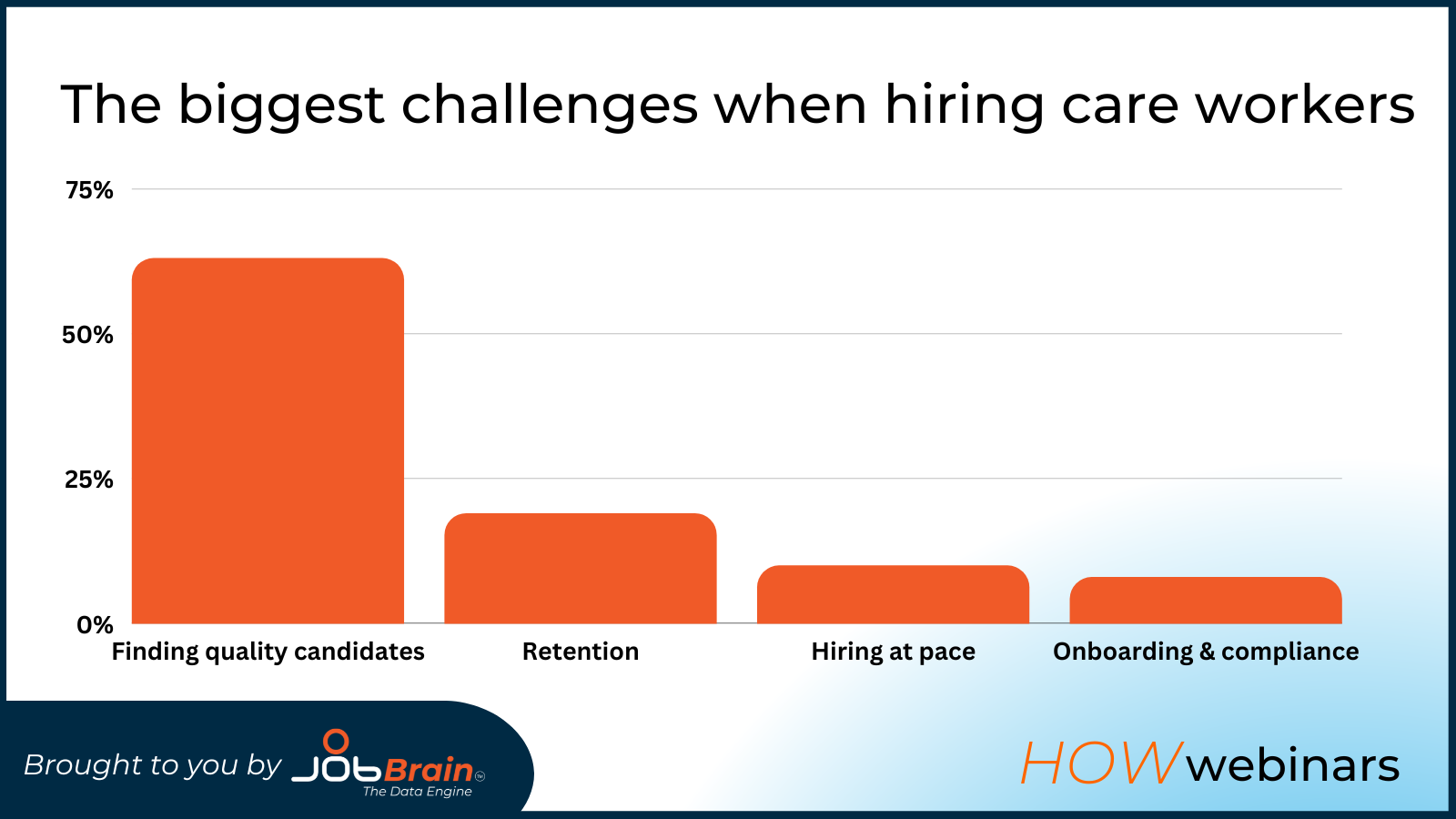Jobtrain’s Giles Heckstall-Smith was joined by Neil Eastwood – Founder of Care Friends and author of the book Saving Social Care, and Ursula Jayes – Founder and Director at Relish Care Recruitment – to talk about hiring in care.
We were also joined by two fabulous care workers who told us their stories and what motivates them! Watch the full webinar below 👇

Keeping the human element in the recruitment process is probably more important than with any other group. It’s emotional labour, so nurturing a care practitioner through the full hiring process needs to have empathy and clarity.
About Care Friends
As part of my research, I found that the best source of staff was employee referral, so we designed an app to gamify that referral process and make it simple for care workers to refer their friends. Only 22% of care workers would recommend the sector to someone right now, so we wanted to increase that as much as we could, and make it beneficial for them too!
A care practitioner is rewarded a point for every referral, and that point is monetary, it turns into a pound for each referral! There’s been about £3 million earned by care workers through the app! On average, you need about 80 applications via job boards to find the right person for the job, but with Care Friends, we’re proud to say that number is just 5!
.png?width=1920&height=1080&name=Landing%20Page%20Hero%20Image%20(3).png) About Relish Care Recruitment
About Relish Care Recruitment
Relish Care Recruitment help care businesses hire operational management staff and consult with care organisations to improve the performance of their recruitment functions. Over the years, I’ve found recruitment is getting hard, so we need to get more creative! The care sector is not like recruiting for other sectors. You can’t treat care workers in that classic processed fashion. People get into Care because they have a calling, because they’re empathetic, because they want to make a difference.
What are the hiring challenges we face hiring care workers?
During our webinar, a poll was running to ask about the main challenges hiring care workers, and the results weren’t necessarily surprising, but they were illuminating!

- Finding quality candidates – 63.46%
- Hiring people at pace – 9.62%
- Onboarding, contracts, and compliance checks – 7.69%
- Retention - 19.23%
What’s the typical psychology of a care worker?
We find that care workers who stick with it have a strong level of emotional maturity. That’s typically brought on from being a carer in their personal life. Consistently that family-care experience is a motivator and a driver. There are five particular areas Neil’s identified that are typically present with your average care worker.
1 – Care work is a haven from personal challenges in their own lives. Care work is a very familial and loving environment and that can contrast with a difficult family life.
2 – There is a really powerful sense of responsibility that a care worker feels.
3 – A surrogate family. A care worker might see their colleagues as a strong emotional support system and a familial bond.
4 – The intrinsic reward and pride that comes with the profession. Their own personal, self-generated satisfaction that comes with the good they do.
5 – A calling for care. This can be spiritual, religious, social, but the care workers feel a real need to go out and do this valuable work.
Retention is key
The UK Health Foundation estimates that by 2030 we’re going to need 627,000 care workers in the country. We need to address the turnover. Why are they leaving? Pay is an important factor, and we should pay our care workers what they’re worth, but it likely goes even deeper than that. Most care workers who leave the profession will do so in the first few months, so it can likely be traced all the way back to the start of the recruitment process.
We’re looking for people who are right and a good fit for the role. Someone who will buy into the five areas that Neil highlighted. If someone’s leaving so quickly, it means that the way the role has been presented on a careers site or job advert is very different from the reality of the job. It is quite daunting working in care for the first time, so easing someone into the job, rather than selling the dream, is vitally important.

.png?width=1600&height=900&name=CARE%20(3).png)